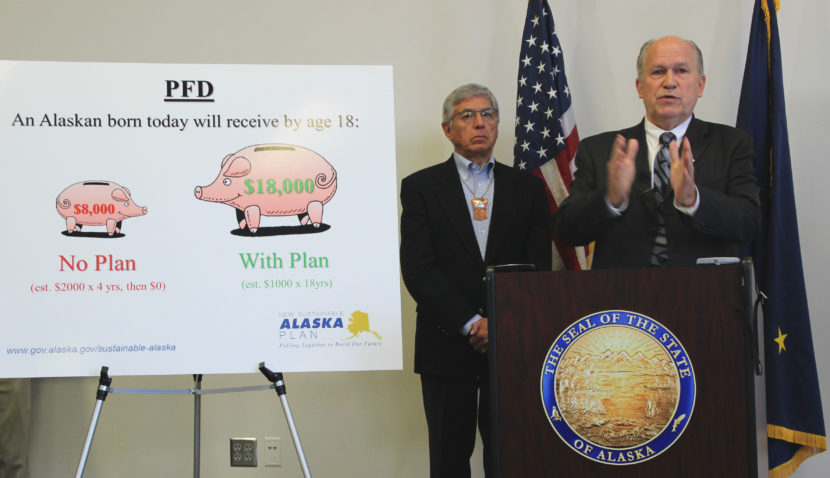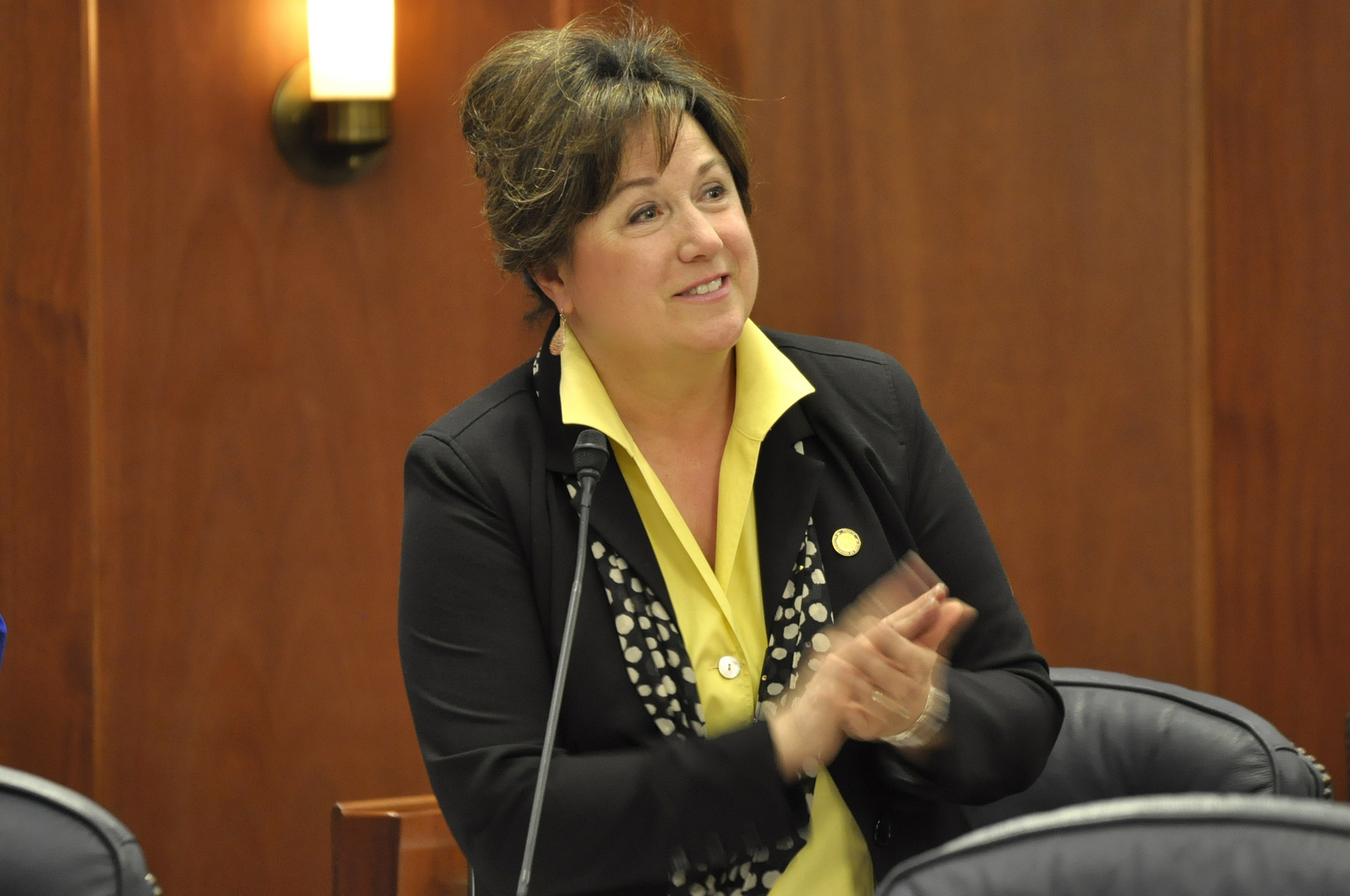Governor Bill Walker’s administration has spelled out what it would mean if the Legislature doesn’t take action on his plan to fund state government. With no more money, in two years the state would slash services, jobs, and the support it gives to local schools and communities.

It’s about noon on a workday and the Glenn Alps trailhead in Chugach State Park is already packed with vehicles.
Sara and Reed Supe walk down the trail from Flattop with their dog and chat with reporter Anne Hillman.
“What’s your dog’s name?” “Olea” “Olea? She enjoying her hike?” “She is. She’s going to be tired for the next week.”
The couple moved up to Alaska for hikes like this. Together, they start looking through a list of potential cuts to state government if the legislature doesn’t find new revenue sources. The governor put forth two scenarios. If lawmakers do nothing, the budget is hacked by 85%.
“Look at like Fish & Game and all those. That would change from 134 to 18.”
Gasp!
“You’d never get to go hunting. Or fishing. I think this is what people up in Alaska live here for. Is the fishing, the hunting, the parks. If we cut all the funding for that….”
“It’s just going to deteriorate.”

They say they’d happily pay more fishing licenses and park fees to help that problem, but they see the projected cuts to education as too damaging — Schools would have thousands of fewer teachers, some university campuses would close.
Governor Walker said that if legislators don’t pass his fiscal plan, which includes restructuring the Permanent Fund and adding new taxes, they’ll be choosing that scenario as the state’s future by default.
“I asked for other plans, if there’s a better plan, please bring it to us. And no plan came forth. But actually, you know, the other day, on a flight to Fairbanks, it really struck me that there really is another plan. And that’s the no action plan.”
State budget director Pat Pitney said the no action plan would cut funding to state agencies from more than $4 billion to $1.5 billion. She says this would create a dire situation.
“These aren’t amounts of money the state could see a real future in,” Pitney said. “It would be a place that nobody’s seen. Looking at an adjusted budget, this would be in the last ‘60s — the same equivalent budget. So, you know, before there was any infrastructure in this state.
With that scenario, the infrastructure like roads and ferry routes couldn’t be maintained.
But Pitney also said that only passing Senate Bill 128, wouldn’t be enough to provide the government services and school aid that Alaskans are used to. SB 128 restructures the Permanent Fund and use that money for operating costs. If we only do that, many state agencies would see a 25 percent cut in funding.
“There’s going to be downward pressure on all aspects, with just a modest amount of tax revenue we can maintain those services, we don’t have to push the costs onto communities,” Pitney said.
While Walker wants to spark the Legislature to act, it hasn’t worked.
When he spelled out what could happen with future budgets, he said that as Alaskans become familiar with who supports the no action plan, they’ll be better informed about who should represent them in Juneau.
House Majority Leader Anchorage Republican Charisse Millett questioned this tactic.
“I think it’s unfortunate that that’s the way the governor chooses to work with the Legislature,” Millett said. “When you’re trying to push a fiscal plan, I think the last thing you want to do is threaten folks with campaigns.”

And some legislators had the opposite reaction from what Walker wanted. Wasilla Republican Representative Lynn Gattis said she’d like to see the scenario with deep cuts.
“In my district, when I went back home, those folks are saying, ‘Cut the budget,’ and certainly that’s what this does,” Gattis said. “So, I don’t think these are dire circumstances.”
Back at the state park, Palmer resident Linda Lozanoff and her family are about to head up the trail. She says it’s time for the Legislature to pick a path.
“I really appreciate Governor Walker’s efforts to take them to task, make them work hard and make decisions,” Lozanoff said.
But she says everyone in the state, including schools, needs to do their part and accept some cuts.
“Well I’ll give you an example,” Lozanoff said. “I recently divorced and I had to a couple years ago, reduce my income by, oh my gosh, by about 2/3s. And if I was able to do it, I think the state can do it.”
Update: An older version of this story said that Charisse Millett was House Minority Leader. She is House Majority Leader.
Anne Hillman is the healthy communities editor at Alaska Public Media and a host of Hometown, Alaska. Reach her at ahillman@alaskapublic.org. Read more about Anne here.
Andrew Kitchenman is the state government and politics reporter for Alaska Public Media and KTOO in Juneau. Reach him at akitchenman@alaskapublic.org.





